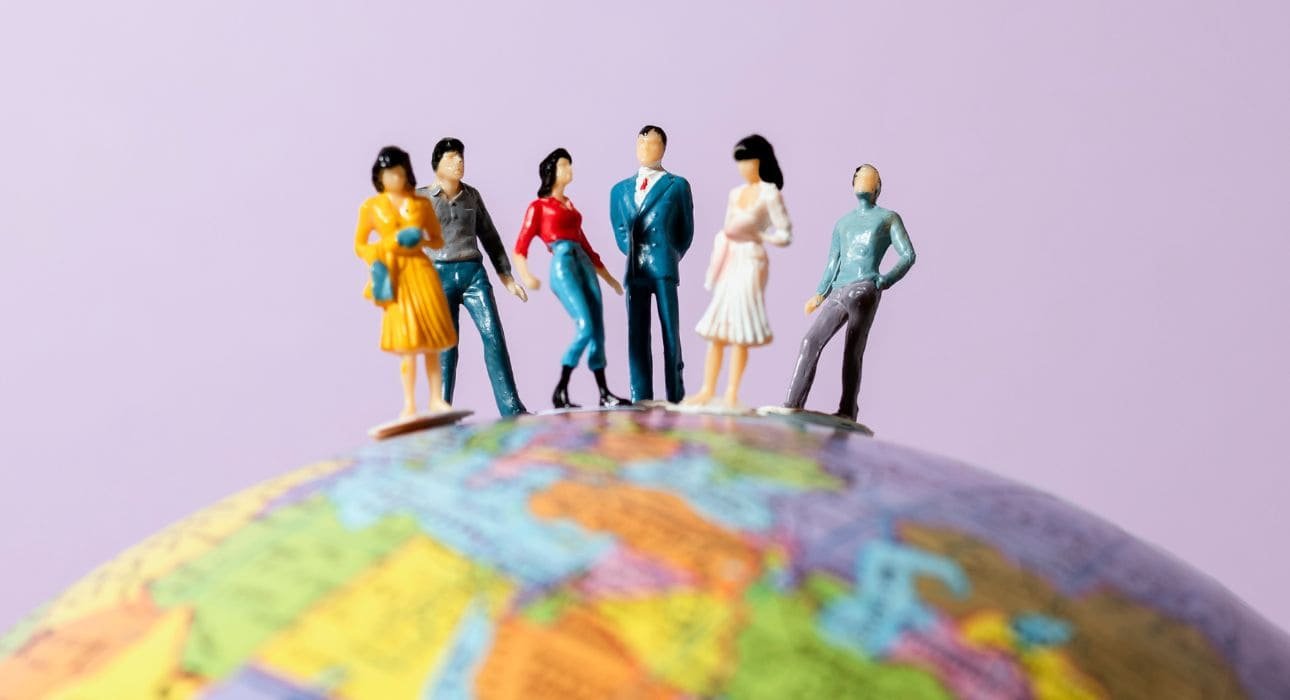Today, cultural shifts as a result of living in a fast-paced, information-rich, and socially evolving world are undoubtedly redefining the nature of identity and mental health more than ever before. These changes, spearheaded by globalization, digitalization, and the like, have further integrated new attitudes and norms in the social sphere, which directly or indirectly affect the way individuals view themselves and their well-being. It is also in grasping such dynamics that people will be better placed to survive the modern world.
Cultural Shifts and Identity Formation
The cultural turns can have a deep impact on the formation of identity. In the globalized world, human beings are exposed to many cultural practices as well as discourses. Such exposure can give the self an extended meaning whereby elements from other cultures are reflected in the identities of individuals. The growth of the global media fraternity, for example, has led to a situation where cultural symbols and narratives have become more diverse, hence creating the space for people to combine the local and global in their identity.
Yet, cultural fusion can also create potential identity crises. The variety of cultural norms and values these individuals encounter can cause confusion or uncertainty about their identity. On the other hand, young people in multicultural societies face difficulties aligning conventional family values with those of contemporary society; they are likely to find themselves dislocated or fragmented in identity.
According to Assistant Professor Balbinder Singh, In different cultures, people may or may not accept the way you have developed your identity. This can create a struggle as you try to fit in, potentially increasing mental tension and leading to mental health issues. For example, if you move from India, where wearing a sari is sometimes common, to a country like Australia or Canada, where it is not part of the official dress code, you might face difficulties adjusting to new cultural norms, such as wearing skirts instead. This struggle to adapt can lead to mental health challenges if you are unable to adjust to the new environment. Conversely, those who are mentally prepared to adapt to new cultures are less likely to experience such issues.
Digitalization and Identity
The digital process has further problematized the formation of identity. In this respect, social media offers a platform for self-expression and identity exploration. Although these platforms could provide support and validation, they also expose a person to idealistic standards and peer pressure. Since social media is curated, it leads to comparisons with others or perceived lives. This factor directly impacts self-esteem and creates identity dissatisfaction. Furthermore, anonymity in online activity can have its results either positively or negatively. On the bright side, it facilitates checking diverse features of identity without fear of condemnation. On the downside, these environments encourage cyberbullying and toxic behaviour, harming mental health.
Read More: How to spend less time on Social Media? and activities to do Instead
Cultural Shifts and Mental Health
The relationship between cultural change and mental health is not simple. On one hand, exposure to a wide range of other cultural practices provides access to coping resources; for instance, mindfulness and meditation, originally from Eastern cultures, are increasingly adopted by Western societies for mental well-being. The pace of this cultural change can also be a cause of mental health problems. Keeping up with the changing social norms and the fear of being left behind may cause stress and anxiety. For example, the change toward issues such as gender and sexual identity has been very fast and went in two different ways: more acceptance and massive backlash, both impacting mental health in variable ways. Those who do not fit into these changing norms may suffer from anxiety and depression.
According to Child Psychologist Vini Jhariya, One way that changes in culture can influence mental health is through the evolving norms and values related to social connectivity and community.
In recent years, there has been a significant cultural shift towards digital connectivity and online interactions. While this has facilitated global communication and access to information, it has also altered the nature of social relationships. The reliance on social media and virtual interactions can lead to a sense of isolation and superficiality in relationships, as face-to-face interactions and deep, meaningful connections become less frequent.
This shift can impact mental health in several ways like
Increased Anxiety and Depression: The pressure to maintain a certain online image and the constant comparison with others on social media can contribute to feelings of inadequacy, anxiety, and depression. The curated and often unrealistic portrayals of life online can lead individuals to feel that they are not measuring up to societal standards.
Loneliness: Despite being more connected than ever, many individuals report feeling lonelier. The lack of physical presence and emotional intimacy in online interactions can result in a lack of genuine support and understanding, which are crucial for mental well-being.
Identity Confusion: Cultural shifts towards valuing certain lifestyles, behaviours, and appearances promoted online can lead to confusion about one’s identity. Individuals, especially adolescents, may struggle to form a stable sense of self when constantly exposed to conflicting messages about what they should aspire to be.
Cyberbullying: The rise of digital platforms has also led to an increase in cyberbullying, which can have severe mental health consequences, including anxiety, depression, and even suicidal thoughts.
As a child psychologist, I, Vini Jhariya, believe that to mitigate these effects, it is essential to promote digital literacy and encourage a balanced approach to online and offline interactions. Fostering environments that support face-to-face communication, community building, and emotional intimacy can help individuals maintain a healthier mental state amidst cultural shifts.
Read More: 7 Characteristics of Emotionally Intelligent People, According to Psychology
Cultural Expectations and Mental Health Stigma
Other cultural expectations cause mental health stigma. In most cultures, there exists stigmatism against mental illness; hence, individuals rarely seek help. However, as cultural attitudes become more enlightened, there is, therefore, growing recognition of mental health issues, leading to more efforts to reduce stigma. For example, with the increasing coverage of mental health in popular media and advocacy movements, there is a desensitization to mental health care, leading to more encouragement for people to seek support. This transition, however, is far from being a levelling experience across all cultural spaces. Traditionalist attitudes towards mental health, for instance, remain pervasive in some cultures, and hence it slows up the process. Extra challenges of access and acceptability may accrue from such backgrounds.
Read More: How Culture Shapes Mental Health and Influences Our Well-being
Education and Policy
Cultural changes and their effects on identity and ultimately mental health are present in education and policy. Multi-dimensional mental health education may offer many skills necessary to negotiate the complexities of emergent cultural contexts. On their part, schools and workplaces that provide support and resources for mental health manage to mitigate some of the negative impacts of cultural change.
Policy interventions are also needed:
Government and organizations can provide frameworks to raise awareness about and support mental health, ensuring the right tools and resources are available. In addition, more inclusive policies—showing respect for all diverse identities—may lower the related stress of identity conflicts.
Read More: Know About Cross-Cultural Psychology: History, Types, And Impacts
Conclusion
Cultural shifts are changing the way identities and mental health are experienced by individuals. The promise of improved self-expression and cultural integration comes with changes that, on the other hand, can be hinged upon the ease with which mental well-being can be maintained. A person’s negotiation of such territory, consequently, is in dire need of understanding that will take into account the entanglements between the nature of cultural dynamics and the mental health profile. Enabling positive identity development and mental health concerning these challenges is a way in which society can help people adapt to cultural change through the provision of supportive environments, advancement of mental health education, and policy inclusions.
References +
- Appiah, K. A. (2006). Cosmopolitanism: Ethics in a World of Strangers. W.W. Norton & Company. Arnett, J. J. (2007).
- Emerging Adulthood: What Is It, and What Is It Good For?. Child Development, 78(3), 1433-1437.Bessière, K., L. N. Kiesler, and J. J. Kraut. (2008).
- Effects of Internet Communications on Social Network Size and Support: A Longitudinal Study. Social Networks, 30(4), 273-28













Leave feedback about this